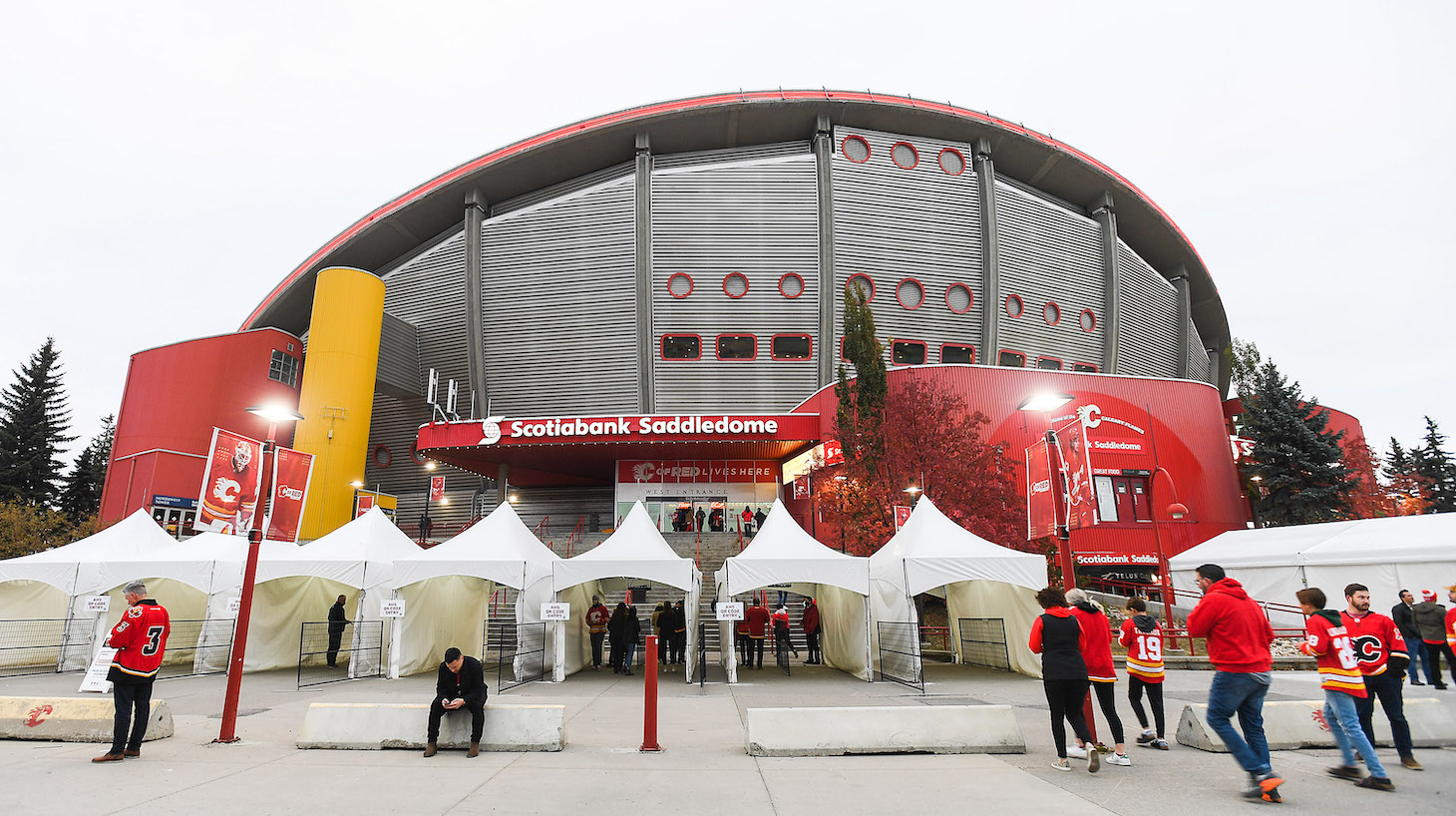The Vancouver Canucks, who are their own festival of malfeasance, drew 18,361 people to watch them fill another bucket, this time to the Colorado Avalanche, but the story for the moment is the 509 folks who couldn't be bothered. It seems Canada is having a referendum on the in-game NHL experience for fans, and the couch at home is kicking Cup–level ass.
Life's been tough in the COVID era for sporting entrepreneurs as their tsunamis of incoming money have been reduced to a mere flood. But among the noticeable effects of man's new relationship to its fellow man is an increased reluctance to seek crowded spaces in which to get drunk at exorbitant prices. In the NHL, where the gate matters more because media deals bring less, the empty seats stretch out like mini-prairies. In the seven Canadian cities, they almost ARE mini-prairies.
And while it might be too early to make such a projection, we think this means that sports are dying.
Now that we have your attention for a completely unearned and unwarranted reason, just like all the big kids' networks, let's use dodgy methodologies to go right to the heart of the matter—our toque to the north.
First, announced attendance is profound bullshit. It's a number announced by a team, and like most team information cannot be independently verified. The better number, which isn't announced, is called scan rate, a fancy term for cheeks in seats. In other words, not the number of tickets sold, but the ones actually used, and as Sportico's Jacob Feldman revealed last week, those rates are dramatically down across the board.
Even if the number of tickets distributed is correct, that means a lot of people have gotten tickets and decided to stay home, or go to a bar, or sleep in a public park, or get arrested. Maybe all four. Who knows? It's the holiday season, right?
In short, that 18,361 in Vancouver was probably closer to 15,000 than 18,000. I tried to count the empty seats, but those TV bastards kept forcing the game on me instead, clearly knowing that the only thing that was going to happen was the Canucks blowing another third-period lead.
The NHL has played 246 games, and announced sellouts for only 76 of them, or 30 percent; in 2020, the percentage was 53 percent, and 56 percent the year before that. That's more than just COVID fear doing that. That's people making conscious choices not to get gouged post-COVID, and it's people who gotten out of the Pavlovian habit of going to a game at all.
And maybe most remarkably, Canadians have resisted the urge to refill arenas more stridently than have Americans. Maybe it is just a stereotype that Canadians like hockey. Maybe they all hate it. We'll take submissions in the comment section.
But as a measuring stick, Toronto's long-treasured years-long sellout streak ended on opening night even though the Leafs were playing reigning Stanley Cup finalist and long-time antagonist Montreal. The Leafs have rallied and announced sellouts for six of their last seven, but as Canada's version of heroin, the Leafs tend to do that.
The other six franchises, though? Vacant as Jason Kenney’s skull. Ottawa barely clears 10,000 most nights, and Winnipeg has the smallest building and still can't get to 15K. In total, Calgary, Edmonton, Montreal, Ottawa, and Winnipeg have had no sellouts at all and Vancouver has had two. That's eight sellouts in 59 dates in the birthplace of malice-fueled shinny, and winter hasn't even hit yet. And this doesn't even factor in the scan rate, which as we have seen makes actual human attendance considerably lower.
The only conclusion to be reached, then, is that Canada hates hockey now, which is about as nihilist as those good folks ever get. But if the NHL wishes to dispute this impeccably researched truth, it could hearken back to a time not so long ago (well, the '80s) when the NFL announced no-shows along with tickets sold and used. Then we could test this crackpot theory once and for all and get on with what is left of our wretched, disintegrating, science-disputing lives. Of course, that would require a level of transparency that no sport wants to consider because as we are seeing, they have lots of things they need to hide, and some of them are actually kind of criminal.






